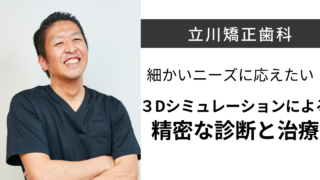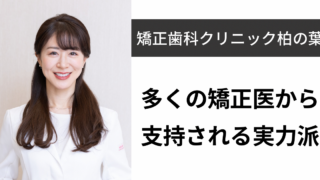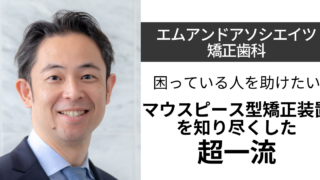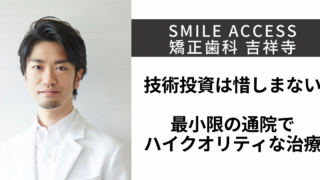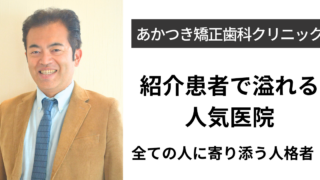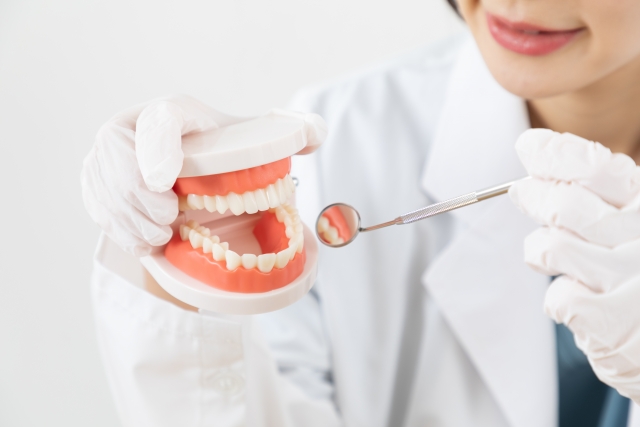
歯は何本あれば大丈夫?歯の本数と健康の関係

先生、歯は正常よりも多くても少なくても良くないと聞きました。
歯って普通は何本あれば大丈夫なんでしょうか?

矯正中のわかりました!
今回は、歯の正常な本数、健康との関係について解説します!
歯は何本?歯の正常な本数
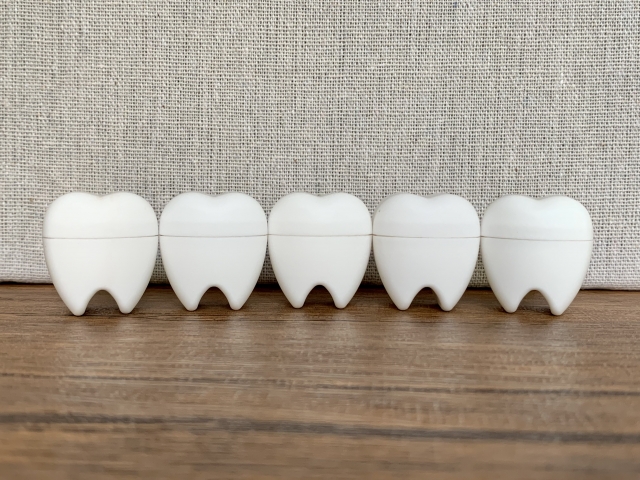
歯の正常な本数は、親知らず4本を除いて上下それぞれ14本ずつ、全部で28本です。
全部で28本といっても、以下のように歯の種類ごとに生える本数が決まっています。
- 中切歯(前から数えて1番目の歯)→上下各2本、計4本
- 側切歯(前から数えて2番目の歯)→上下各2本、計4本
- 犬歯(前から数えて3番目の歯)→上下各2本、計4本
- 第一小臼歯(前から数えて4番目の歯)→上下各2本、計4本
- 第二小臼歯(前から数えて5番目の歯)→上下各2本、計4本
- 第一大臼歯(前から数えて6番目の歯)→上下各2本、計4本
- 第二大臼歯(前から数えて7番目の歯)→上下各2本、計4本
ちなみに、親知らず(第三大臼歯)は上下各0〜2本、計0〜4本あり、生えてくる人と生えてこない人がいます。
歯には以下のような役割がそれぞれあります。
- 中切歯、側切歯→食べ物を噛み切って細かくする
- 犬歯→中切歯、側切歯とともに噛み切る、噛み合わせのガイド役となる
- 第一小臼歯〜第二大臼歯→食べ物を擦り潰す
また、すべての歯に共通して発音を作る役割があります。
そのため、1本でもなくなると口の機能が低下する恐れがあるので注意しましょう。
ちなみに、子どもの歯(乳歯)は全部で20本、生後6ヶ月前後から生え始めて3歳頃までに生え揃います。
永久歯が生え始めるのは6歳頃で、15歳頃までにすべての歯が永久歯に生え変わるのが一般的です。
歯は何本あれば大丈夫?

歯は28本あるのが望ましいですが、長い人生の途中で減ってしまうことがあります。
では、歯は何本あれば大丈夫なのでしょうか?
歯の本数別にみた50歳以上の「何でもかんで食べることができる人」の割合を調査した厚生労働省の「国民健康・栄養調査」では、20本以上歯のある人の方がなんでも噛んで食べることができる割合が高くなっています。
そのため、概ね20本以上の歯が残っていれば、ほぼ満足に食事を摂ることができると言えるでしょう。
歯科では、日本人の平均寿命の80歳までに20本の歯を残すという「8020(はちまるにいまる)運動」というものがあります。
日本人の平均寿命が伸びているため、80歳よりも上の世代まで高齢期を健康的に過ごすという意味合いが強くなっているようですが、「なんでも噛んで食べるには20本以上の歯があったほうがいい」というのは、世代を問わず歯が何本あれば大丈夫なのかの目安となっています。
歯の本数が減る原因
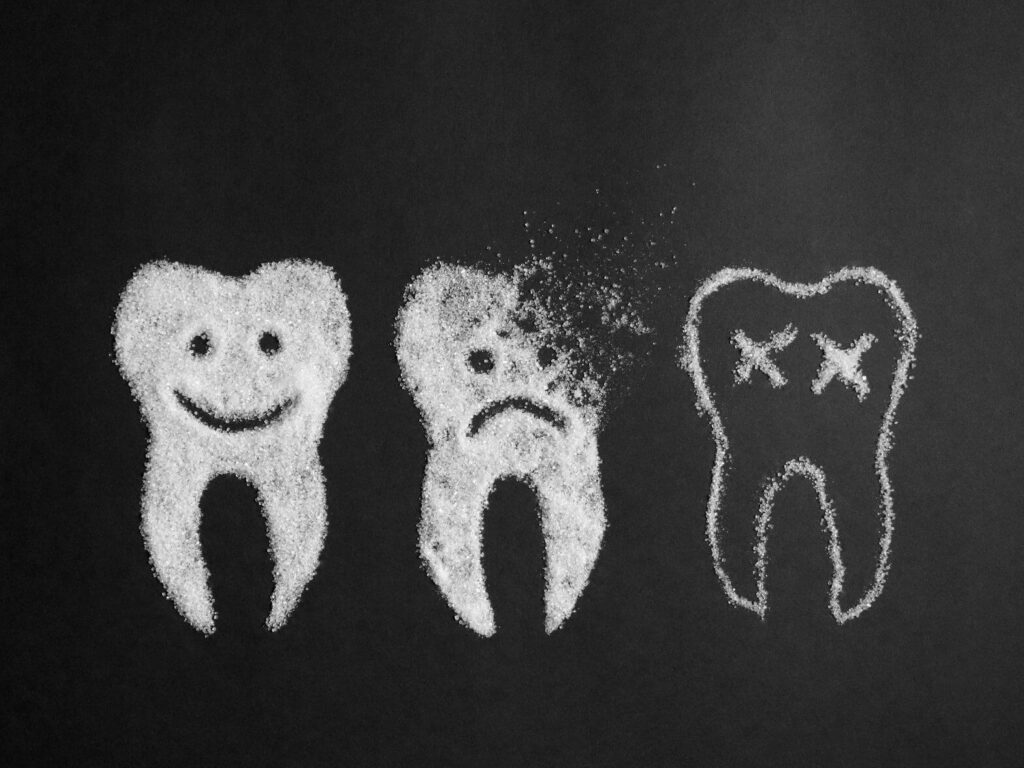
歯の本数は、以下のようなことが原因で減ることがあります。
- 歯周病
- 虫歯
- 外傷
- 先天欠如歯
歯の本数が減る原因には、後天的なものと先天的なものがあります。
歯周病、虫歯、外傷によるものは、病気や不慮の事故のような後天的な原因です。
一方、先天性欠如歯は生まれつきの先天的な原因で歯が少ないことを指します。
歯の本数が減る原因①|歯周病
歯周病は、歯の汚れなどが原因で歯を支える骨や歯茎が溶ける病気です。
歯周病が進行すると支えを失った歯が抜け落ちてしまうため、歯を失う最も大きい原因の一つです。
歯周病は口全体に起こることが多いので、一度に複数の歯を失う可能性があります。
歯の本数が減る原因②|虫歯
虫歯菌が作る酸によって歯が溶けてなくなる病気です。
進行すると歯の神経に炎症を起こして、激しい痛みが起こることがあります。
歯の根まで溶けてしまったり、治療ができないため抜歯を余儀なくされてしまったりすることで歯を失うことがあるので注意が必要です。
歯の本数が減る原因③|外傷
歯周病や虫歯だけでなく、外傷によって歯の本数が減る場合があります。
- 不慮の事故で歯に衝撃を受けたときに抜けてしまう
- 食いしばりや歯ぎしりで歯が割れる、欠ける
- 食いしばりや歯ぎしりの負担によって歯の神経が炎症を起こすなど
外傷による歯の喪失は、このように外部からかかる力によって歯がダメージを受けることで起こります。
歯の本数が減る原因④|先天性欠如歯
先天性欠如歯で永久歯28本(親知らずを除く)の中に歯が生まれつきない場合は、本数が少ないです。
乳歯が20本すべて揃っていても、その下に生え変わる永久歯が存在しない場合は先天性欠如歯です。
原因ははっきりとわかっておらず、歯茎の中で歯が作られるときに永久歯の素となる歯胚が作られないことで起こります。
先天性欠如歯は、前から数えて2番目の側切歯、前から数えて5番目の第二小臼歯によくみられます。
乳歯のときに2本の歯がくっついている癒合歯や奥歯の乳臼歯がいつまでも生え替わらない場合は、先天性欠如歯の可能性があります。
歯医者でレントゲンを撮影することで確認できるので、7歳くらいになったら歯医者で検診を受けるのがおすすめです。
歯の本数が少ないことでおきる影響

歯の本数が少ないと、
- 歯がない部分に両隣の歯が倒れてくる
- 向かい合う歯が伸びてかみ合わせが悪くなる
- 先天性欠如の部分が埋まらずにすきっ歯になるなど
このようなことが原因で歯並びや噛み合わせが乱れる可能性があります。
歯並びや噛み合わせが乱れると、
- 噛み合わせの負担で歯や顎関節がダメージを受ける
- 虫歯・歯周病・口臭が発生する
- 発音や滑舌に悪い影響が出る
- 頭痛、肩コリが起こる
- 歯並びが乱れて見た目が気になる など
このようなリスクが高くなります。
口の状態にもよりますが、歯の本数が少ないと身体と心の問題を引き起こす場合もあるので注意が必要です。
歯の本数が正常よりも多い人も注意が必要
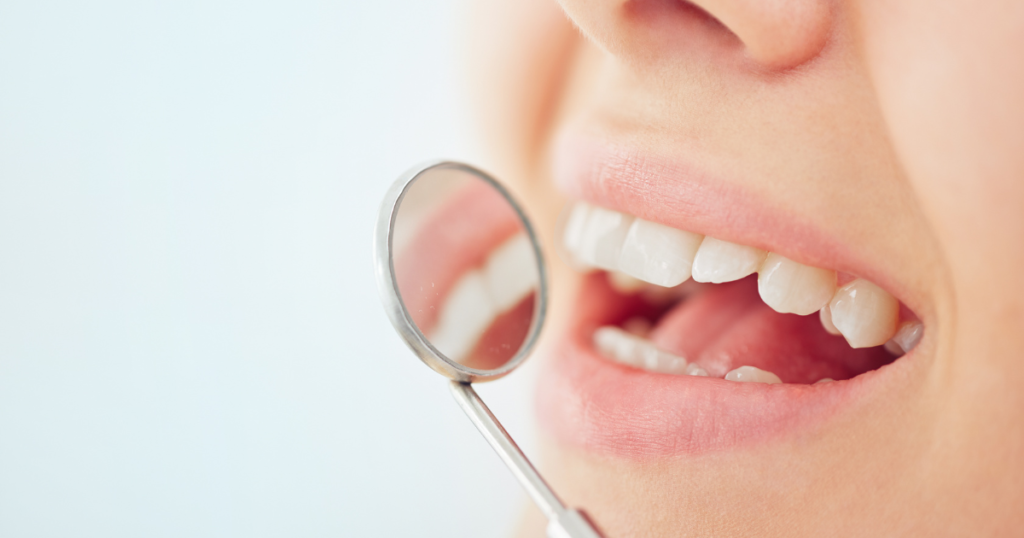
歯の本数が少ないと歯並びや噛み合わせに問題が出る可能性がありますが、実は歯の本数が普通よりも多い場合も注意が必要です。
歯は、親知らずを除いて計28本がパズルのように噛み合うことでバランスをとっています。
そのため、歯の本数が通常よりも多い場合も、噛み合わせが乱れてしまうことがあるのです。
親知らずを除いて計28本よりも歯の本数が多いことを「過剰歯」といいます。
上顎の前歯の中央、ちょうど歯列の真ん中に発生することが多い歯です。
ちなみに、歯並びを乱す可能性のある親知らずにも注意が必要です。
親知らずがあること自体は、過剰歯のような異常のある状態とは言いませんが、生えるときにトラブルを起こして問題視されやすい歯です。
歯は、親知らずを除いて計28本あるのが一般的ですが、歯を数えて29本以上ある場合は、過剰歯や親知らずがある可能性が高いので注意しましょう。
歯の本数が少ない場合の治療方法
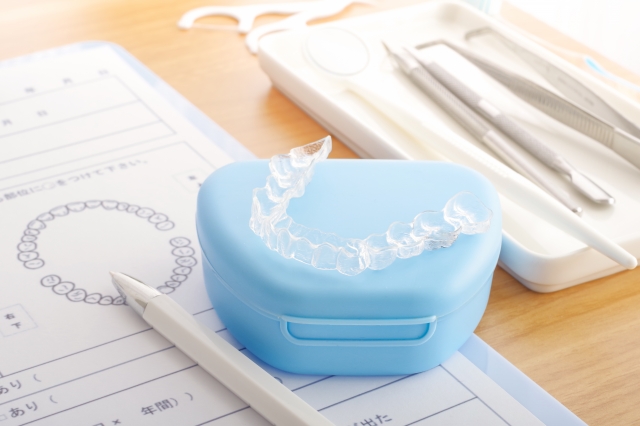
歯の本数が少ない場合は、以下の方法で歯を補填したり歯列矯正で整えたりするのが一般的です。
- インプラント
- ブリッジ
- 入れ歯
- 乳歯の長期保存
- 歯列矯正
顎の大きさや歯列の状態によって治療方法は変わるので、歯科医師と相談して決めましょう。
まとめ
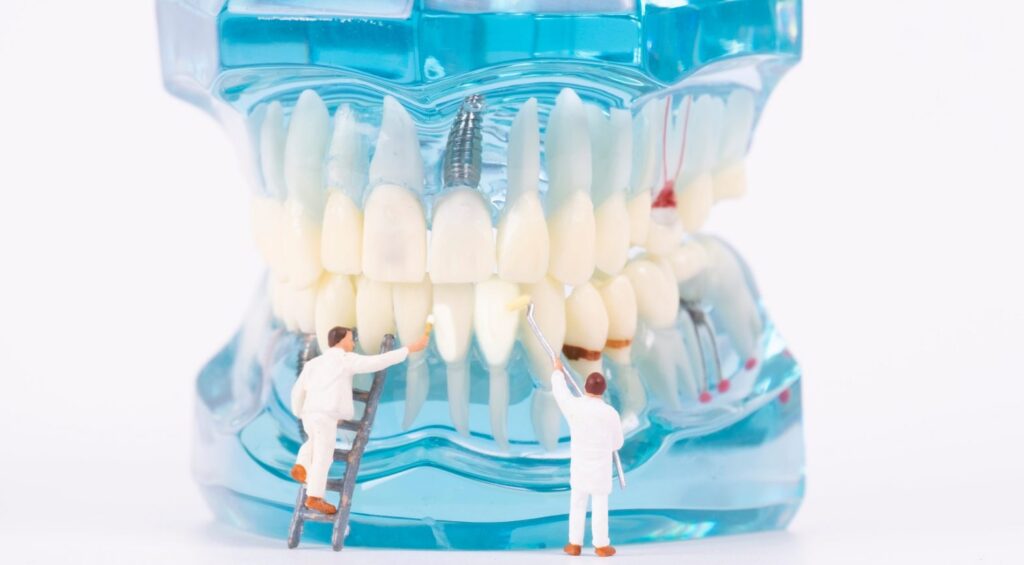
歯の正常な本数は、親知らず4本を除いて上下それぞれ14本ずつ、全部で28本です。
歯は28本の歯が上下に噛み合ってバランスを取っているため、多くても少なくても歯並びや噛み合わせの乱れを引き起こすことがあります。
噛み合わせが乱れると口と身体の健康に悪い影響が出ることがあります。
歯の本数が気になった人は、歯医者で確認してもらいましょう。
365dentistでは、
- 歯科医師運営のオープンチャットでのご相談
- あなたにあった歯医者探しのお手伝い
- お口に関するお役立ちコラム
で、あなたのお口の健康と美をサポートいたします!
お口のお悩みがある方は、まずは歯科医師運営のオープンチャットでお気軽にご相談ください!
関連記事:きれいな歯並びの条件とは
365dentist総監修 歯科医師/ゆきこ
長崎大学歯学部卒業、〜2018 九州医療センター、2018〜現在 都内歯科クリニック勤務
監修 歯科医師/Naomi
臨床研修終後、都内審美歯科勤務。現在は歯科医師/歯科ライター


